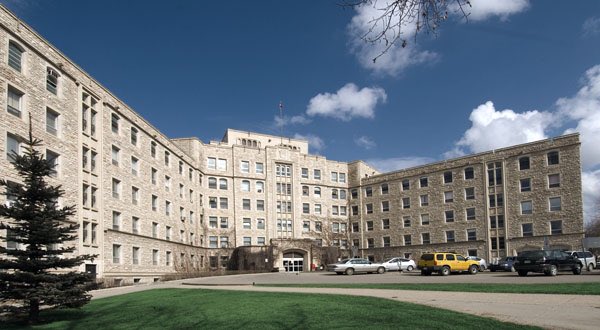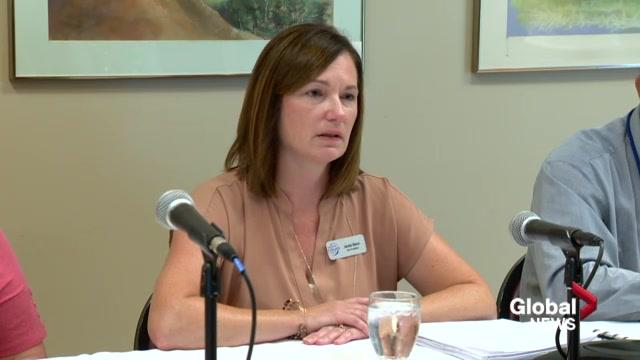It was a decision they say they were pressured into – one they couldn’t take back.

On Thursday, the Saskatoon Health Region (SHR) admitted it failed Indigenous mothers in the community after they said they were coerced to have a tubal ligation.
READ MORE: Saskatoon Health Region launches indigenous women tubal ligation review
“It feels like, if you go to the doctor to have a broken finger fixed and they cut off your hand to fix the finger problem. I went to have a baby, not a tubal ligation,” said one woman in describing the experience.
Aboriginal women said they went to Royal University Hospital in Saskatoon to have a baby and were pressured into having a sterilization procedure during labour, which only added to the stress of childbirth.
“I want to apologize to the women who came forward in the review, who have come forward to us in the past and who haven’t yet been able to forward to us,” said Jackie Mann, vice-president of Intregrated Health Services with SHR.
“I am truly sorry for the coercion for tubal ligation that you experienced while in our care. I’m sorry that you were not treated with the respect, the compassionate and all support that you needed and deserved,” she said as she choked back tears.
On Jan. 15, an external review was launched after women say they felt profiled and powerless.

Get weekly health news
A local elder was on hand during the interviews, a First Nations woman hired as the review assistant and counselling provided to the women follow their interviews.
In total, 16 indigenous women reached out to the review assistant. Of those, seven women participated and shared stories, saying they were harassed into signing off on a permanent procedure – they didn’t want.
Testimony from one woman included trying to leave the area where the procedure was performed and physically being wheeled back.
“The doctor was talking to the nurses and said ‘did she sign consent?’ The nurse said ‘yes’. But the doctor clearly heard me say ‘I don’t want this.'”
Mann, clearly unsettled but what was described in the 56-page external review had this to say.
“No women should ever be treated the way you were treated.”
The report, said health officials, also proves racism exists even in an environment that prides itself on providing compassionate care.
“I think with any time of discrimination and racism – a lot of times it’s very veiled,” said Leanne Smith, director of maternal services, when asked how this could have happened.
“I don’t think we’ve done a good job at being able to call each other on what we see or even sometimes identify what we see. I guess I would answer, how has it got this way anywhere in this country?” she said and that there’s no excuses for this behaviour.

“Often one interaction with one health care provider isn’t necessarily seen by others – it maybe be – it might not be – but it’s when we started to hear from people who had been impacted that we realized that if this has happened to one or two women – it’s happened to more women.”
Officials said one of the most disturbing things to have happened to these women other than the experience itself was how they felt about the entire health care system afterwards.
All of the women interviewed say they now distrust the system and most had not been back to the doctor or had had very little health care since.
“As a senior leader in our health system commit that I will do – all that I can – to bring about real change,” said Mann between emotional pauses.
A total of 10 calls to action have now been recommended.
One of the women who this happened to was present during the news conference and told Global News she’s confident these changes will provide a better experience for future generations of mothers to come.
Some of the suggestions, like a Reproductive Centre and Intensive Support Centre for women, will require major funding. Discussions with the Ministry of Health will take place in the coming weeks.
However, Leanne Smith was quick to point out that even now – it doesn’t cost a single cent to provide care with respect.
As for lawsuits, the health region stated it has yet to be served any papers signalling a pending lawsuit.
An attorney for one of the women said they are exploring her legal options at this point and a lawsuit isn’t out of the question.







Comments